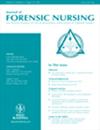制定和实施协调一致的社区应对措施,以解决虐待和忽视老年人的问题
IF 0.9
4区 医学
Q3 CRIMINOLOGY & PENOLOGY
引用次数: 2
摘要
背景:老年人虐待、忽视和经济剥削影响着美国500多万社区老年人。虽然可以提供服务来帮助这些受害者,但这些服务在社区内往往是分散的,服务提供者提供预防性服务的手段有限。协调社区反应(CCR)是一种联盟,旨在通过单点进入系统和更多以团队为基础的预防方法来克服孤立的服务。本文描述了本地CCR的机构间功能的开发、实现和评估。方法CCR的主要目标是更好地为老年人虐待、忽视和经济剥削的受害者提供服务。然而,随着联盟的发展,如何做到这一点的使命从受害者服务模式转变为预防方法。该CCR的独特功能包括统一的同意书,允许在所有服务提供商之间共享受保护的客户数据,以及用于服务记录文档和转介的技术支持基础设施。利用行政记录中的现有数据,2016年至2018年,向有风险的老年人提供服务的独特机构间转诊数量增加了450%。机构之间联系的强度和类型随着时间的推移而变化。在所有提供服务的合格客户中,大多数(77%)同意提供统一的同意,允许其他当地合作机构之间共享数据。评估表明,该联盟在指导CCR规划发展的原始逻辑模型中满足了大部分计划的可测量输出。评价结果和吸取的经验教训为ccr自我评估的最新指南提供了依据。本文章由计算机程序翻译,如有差异,请以英文原文为准。
Development and Implementation of a Coordinated Community Response to Address Elder Abuse and Neglect
ABSTRACT Background Elder abuse, neglect, and financial exploitation impacts over five million community-dwelling older adults in the United States. Although services are available to help these victims, they are often fragmented within communities with service providers having limited means to provide preventative services. The coordinated community response (CCR) is a type of coalition intended to overcome siloed services through a single-point-of-entry system and more team-based approaches to prevention. This article describes the development, implementation, and evaluation of the interagency functioning of a local CCR. Methods The main goal of the CCR has been to better serve victims of elder abuse, neglect, and financial exploitation. However, through the coalition's evolution, the mission of how to do this shifted from a victim service model to a prevention approach. Unique features of this CCR include a uniform consent form to allow sharing of protected client data among all service providers and a technology-supported infrastructure for service record documentation and referrals. Evaluation Using available data from administrative records, the number of unique interagency referrals for services to older adults at risk increased 450% from 2016 to 2018. The strength and type of connections between agencies changed over time. Among all eligible clients offered services, most (77%) agreed to provide uniform consent to allow data sharing among other local partner agencies. Discussion The evaluation showed that the coalition met most of its planned measurable outputs in the original logic model guiding the CCR programmatic development. The evaluation findings and lessons learned inform updated guidelines for self-assessment of CCRs.
求助全文
通过发布文献求助,成功后即可免费获取论文全文。
去求助
来源期刊

Journal of Forensic Nursing
NURSING-
CiteScore
1.50
自引率
10.00%
发文量
120
期刊介绍:
The Journal of Forensic Nursing (JFN) the official journal of the International Association of Forensic Nurses, is a groundbreaking publication that addresses health care issues that transcend health and legal systems by articulating nursing’s response to violence. The journal features empirical studies, review and theoretical articles, methodological and concept papers, and case reports that address the provision of care to victims and perpetrators of violence, trauma, and abuse. Topics include interpersonal violence (sexual assault, abuse, intimate partner violence); death investigation; legal and ethical issues; forensic mental health nursing; correctional nursing; and emergency and trauma nursing.
 求助内容:
求助内容: 应助结果提醒方式:
应助结果提醒方式:


